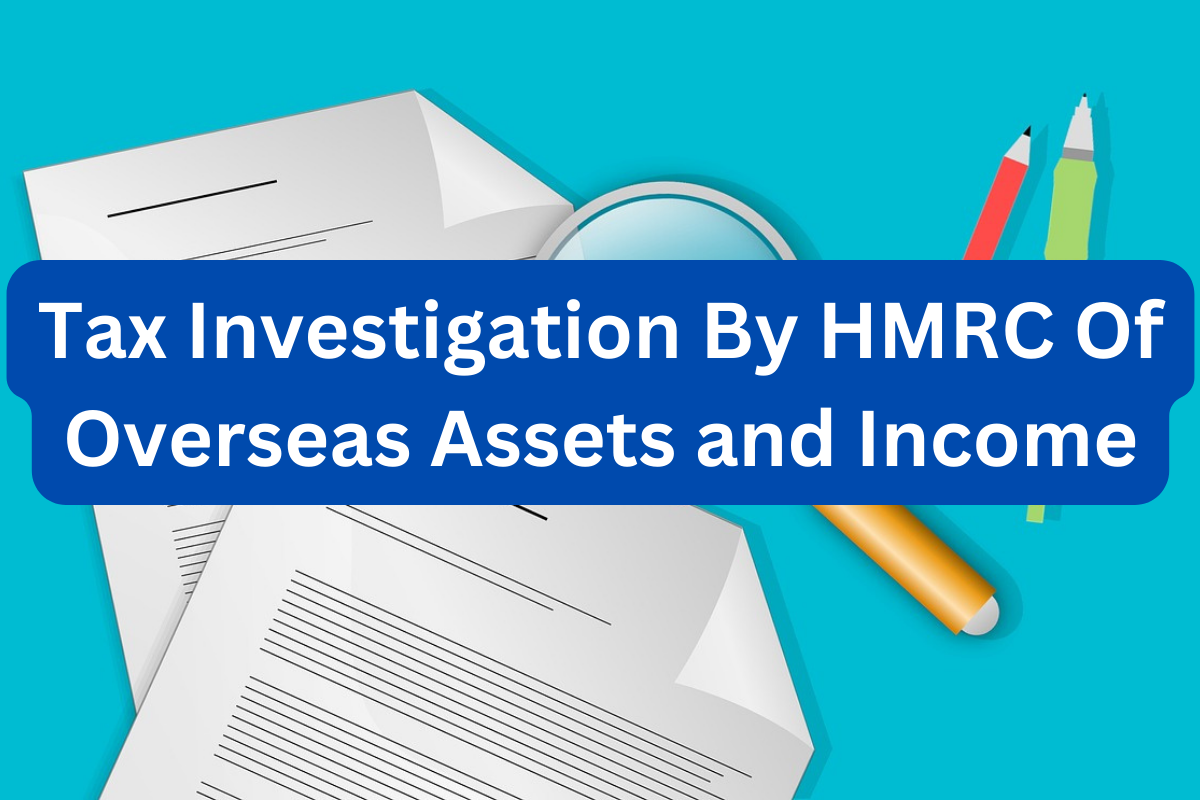As tax evasion and avoidance continue to be major concerns for the government, the HMRC has been increasingly focusing on tax investigations related to overseas assets and income.
This is due to the growing number of individuals and businesses with overseas connections and the complexity of the tax laws surrounding these assets and income.
The Foreign Account Tax Compliance Act (FATCA) and the Common Reporting Standard (CRS) are international agreements designed to combat tax evasion.
Under these agreements, financial institutions must report information about their customers’ overseas accounts and assets to their respective governments, who then share the information with other countries.
This means that if you have an overseas bank account, the bank may report information about your account to HMRC.
Post Contents
Common Reasons For HMRC To Investigate Overseas Assets And Income
Information received from foreign tax authorities: One of the primary reasons why HMRC may investigate overseas assets and income is information received from foreign tax authorities.
The Common Reporting Standard (CRS), an international agreement between over 100 countries, requires financial institutions to report the financial accounts of non-residents to their respective tax authorities.
This means that if an individual or company has overseas assets or income, it is highly likely that HMRC will be aware of it.
Data obtained through technology: HMRC has access to a range of tools and technology that can help them identify potential tax evaders.
For example, they can use data analytics to identify patterns of behavior that may indicate tax evasion. They can also use social media and other online platforms to gather information about individuals and companies.
HMRC Tax Investigation Process
The HM Revenue and Customs (HMRC) is responsible for collecting taxes and ensuring that individuals and companies comply with tax laws in the UK. One of the ways that HMRC ensures compliance is through tax investigations.

How HMRC Conducts Tax Investigations
HMRC conducts tax investigations in a variety of ways, including the use of letters and information requests.
These letters and requests can be sent to individuals or companies that HMRC suspects of not paying the correct amount of tax.
The letters and requests can be used to gather information about the individual or company’s income, expenses, and other financial details.
In addition to letters and information requests, HMRC can conduct tax investigations by visiting the premises of the individual or company being investigated.
During these visits, HMRC officials can inspect financial records, interview employees, and gather other evidence that may be relevant to the investigation.
Steps Involved in the Investigation Process
The investigation process typically involves several steps. The first step is usually a review of the individual or company’s tax records.
This review can be triggered by a variety of factors, including discrepancies in the tax records or information received from third parties.
HMRC may conduct a more detailed investigation (COP9 Investigations) if the initial review reveals potential issues.
This investigation can gather additional information and evidence, such as bank statements, invoices, and other financial records.
Once HMRC has gathered all the necessary information and evidence, it will review it to determine if any discrepancies or issues need to be addressed.
If there are issues, HMRC may take further action, such as imposing penalties or pursuing legal action.
Rights and Obligations of Individuals Or Companies Being Investigated
Individuals or companies being investigated by HMRC have certain rights and obligations. One of the most important rights is the right to legal representation.
This means that individuals or companies being investigated can seek the advice of a lawyer to help them navigate the investigation process.
Individuals or companies being investigated also have an obligation to provide accurate information to HMRC.
This means that they must provide all the relevant information and evidence requested by HMRC and must do so in a timely manner. Failure to provide accurate information can result in penalties or legal action.

Minimize The Risk of HMRC Tax Investigation on Overseas Assets and Income
As a responsible taxpayer, it is crucial to understand that HM Revenue and Customs (HMRC) can investigate your tax affairs, including any income or assets held overseas.
Being investigated by HMRC can be a stressful and costly experience, which is why it is essential to take proactive steps to minimize the risk of being investigated.
Use of Disclosure Facilities: One of the most effective ways to minimize the risk of being investigated by HMRC is to use disclosure facilities.
These facilities allow taxpayers to come forward and disclose any undeclared income or assets held overseas. By doing so, taxpayers can avoid penalties and prosecution for tax evasion.
The Worldwide Disclosure Facility (WDF) is the most popular disclosure facility, which allows taxpayers to disclose any undeclared income or assets held overseas.
The WDF is available to anyone who has not disclosed their overseas assets or income to HMRC.
Seek Professional Advice: Another way to minimize the risk of being investigated by HMRC is to seek professional advice. This includes the use of accountants and lawyers who specialize in tax law.
These professionals can provide valuable advice on tax planning and compliance, which can help to minimize the risk of being investigated by HMRC.
Choosing a professional experienced in dealing with overseas assets and income is important. This is because the tax rules and regulations can vary significantly from country to country, and it is essential to ensure that you are complying with all relevant tax laws.
Maintain Accurate Records: Maintaining accurate records is crucial for minimizing the risk of being investigated by HMRC. This includes keeping records of all income and assets held overseas and any tax paid in the relevant country.
By keeping accurate records, taxpayers can demonstrate that they have complied with all relevant tax laws and regulations. This can help to minimize the risk of being investigated by HMRC.
Be Transparent with HMRC: Finally, it is essential to be transparent with HMRC. This means disclosing all relevant information about your overseas assets and income and being honest about any mistakes or errors that have been made.
By being transparent with HMRC, taxpayers can demonstrate that they have nothing to hide and are willing to comply with all relevant tax laws and regulations. This can help to minimize the risk of being investigated by HMRC.
In conclusion, minimizing the risk of being investigated by HMRC on overseas assets and income requires a proactive approach.
By using disclosure facilities, seeking professional advice, maintaining accurate records, and being transparent with HMRC, taxpayers can minimize the risk of being investigated and avoid the stress and cost of an investigation.






























